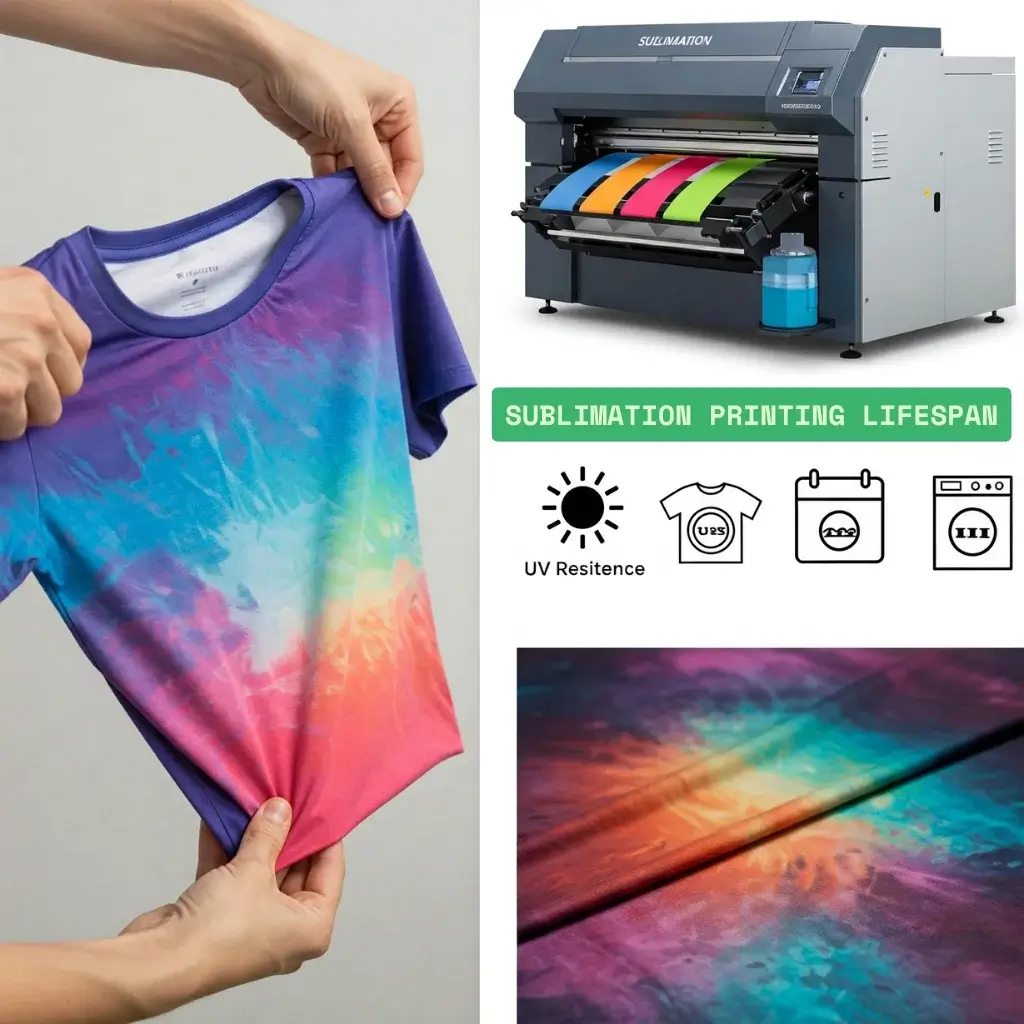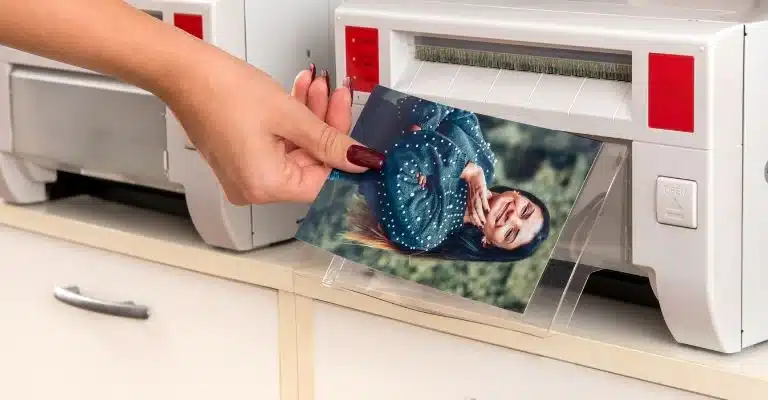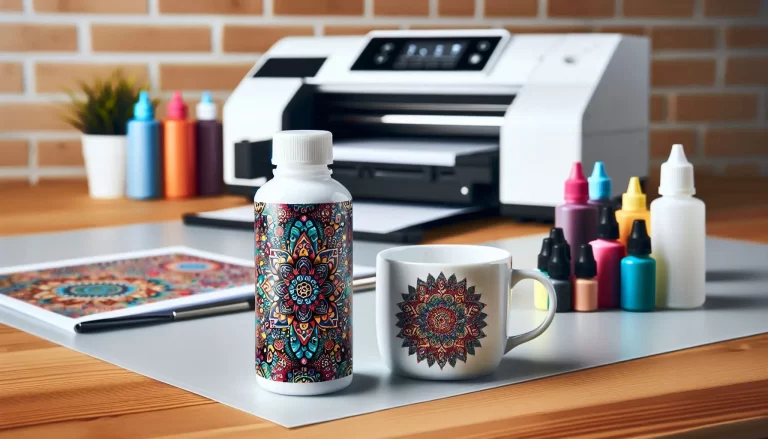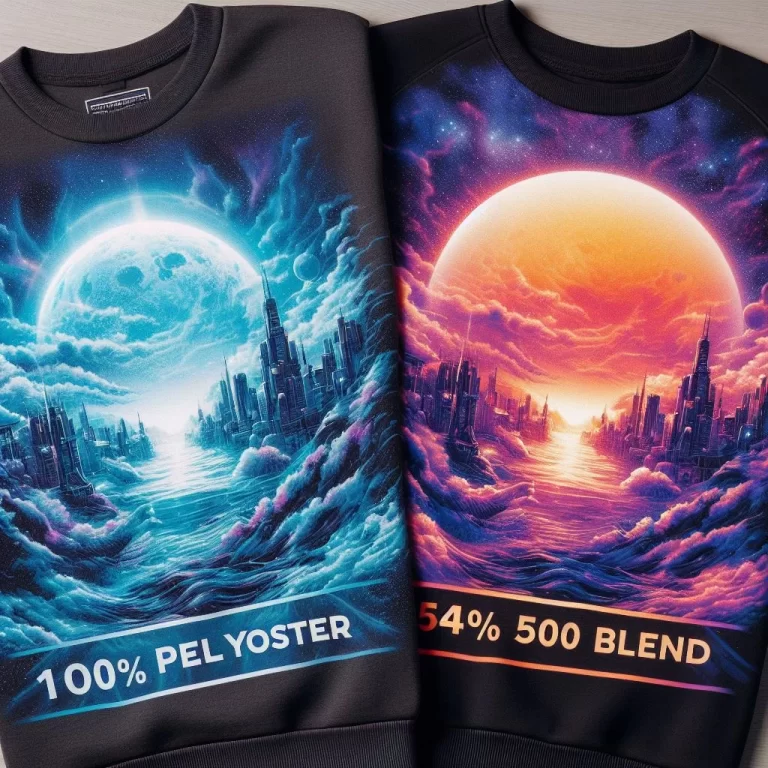Sublimation Printing Lifespan: How Long Does It Last?
Learn about the key factors that impact the lifespan of sublimation prints and increase their durability and vibrancy with our comprehensive guide. Sublimation prints can last for 3-5 years or more with proper care and maintenance. The lifespan is determined by the quality of materials and environmental factors.
When investing in sublimation printing, one of the most common questions is: How long will the prints last? Whether you’re creating custom apparel, promotional products, or personalized decor, durability matters.
At Subli Genius Print, we’re here to break down the factors that affect sublimation printing lifespan and how you can ensure long-lasting, vibrant results.
Sublimation Printing Lifespan
Sublimation printing is well-known for its durability. Sublimated designs can last for:
- 5+ years on fabrics (depending on wear and care)
- Decades on hard substrates (like mugs, plaques, or tiles) when not exposed to excessive UV light or abrasion
Sublimation dyes are incorporated into the material instead of being placed on top, unlike traditional printing methods like screen printing or vinyl. This means the print won’t crack, peel, or fade easily.
Factors That Affect Sublimation Print Longevity
4 key factors influence how long your sublimation prints will stay vibrant:
1. Quality of Materials
- Polyester Fabric Content: Sublimation works best on polyester or polymer-coated items. The higher the polyester percentage (ideally 80-100%), the more vibrant and long-lasting the print.
- Coating on Hard Substrates: Mugs, phone cases, and other hard surfaces must have a special polymer coating to hold the sublimation ink properly.
2. Ink & Paper Quality
- Using high-quality sublimation ink (like Sawgrass, Epson, or Cosmos) ensures better color retention.
- Premium sublimation paper prevents ink bleeding and ensures sharp transfer.
3. Heat Press Settings
- Time, Temperature, and Pressure must be optimized. Under-pressing leads to weak transfers, while over-pressing can scorch the material.
- Typical settings: 380°F–400°F (193°C–204°C) for 45–60 seconds (varies by material).
4. Exposure to UV Light & Washing
- UV Exposure: Prolonged sunlight can cause fading over time. For outdoor items (like flags), use UV-protective sprays.
- Washing & Care:
- Wash sublimated fabrics in cold water with mild detergent.
- Avoid bleach or harsh chemicals.
- Turn garments inside out before washing.
- Air dry or use low heat to prevent damage.
Comparing Sublimation to Other Printing Methods
| Printing Method | Average Lifespan | Durability | Best For |
|---|---|---|---|
| Sublimation | 5+ years (fabrics), Decades (hard goods) | High (ink bonds with material) | Custom apparel, mugs, phone cases |
| Screen Printing | 2–5 years (can crack/fade) | Medium (ink sits on top) | Bulk T-shirts, posters |
| DTG (Direct-to-Garment) | 1–3 years (fades with washes) | Low-Medium | Detailed designs on cotton |
| Vinyl/HTV | 1–3 years (can peel/crack) | Medium | Simple designs, small batches |
Tips to Extend Sublimation Print Life
✔ Use high-polyester fabrics (at least 80%) for apparel.
✔ Always pre-press fabrics to remove moisture before printing.
✔ Store sublimated products away from direct sunlight when not in use.
✔ Follow proper washing instructions to prevent premature fading.

What are some tips for increasing the lifespan?
Store prints in a cool, dry place: High humidity or temperature can cause your sublimation prints to fade or deteriorate.
Use UV-resistant coatings: Applying a UV-resistant coating to your sublimation prints can help protect them from fading due to exposure to sunlight or other UV light sources.
Use high-quality substrates: Choose high-quality substrates explicitly designed for sublimation printing to ensure the best possible results.
Avoid direct sunlight: Keep sublimation prints away from direct sunlight or other UV light sources to prevent fading.
Control the environment: Store sublimation prints in a cool, dry place to prevent humidity damage.
Protect the print: Consider using a protective coating, such as a laminate or clear varnish, to protect the sublimation print from damage.
The durability of sublimation prints
- Exposure to UV light: Ultraviolet (UV) light can cause sublimation prints to fade, especially if exposed to direct sunlight or other UV light sources.
- Heat exposure: Sublimation prints are produced using high temperatures, but exposure to extreme heat can cause the colors to fade or bleed.
- Humidity: High humidity levels can cause sublimation prints to wrinkle or peel over time.
- Substrate quality: The quality of the substrate used for sublimation printing can affect the durability of the print. Lower-quality substrates may also not hold the dye, leading to faster fading.
To increase the durability of sublimation prints, consider the following tips:
- Use high-quality substrates: Choose high-quality substrates explicitly designed for sublimation printing to ensure the best possible results.
- Avoid direct sunlight: Keep sublimation prints away from direct sunlight or other UV light sources to prevent fading.
- Control the environment: Store sublimation prints in a cool, dry place to prevent humidity damage.
- Protect the print: Consider using a protective coating, such as a laminate or clear varnish, to protect the sublimation print from damage.

Tips for increasing the durability of sublimation prints
- Use high-quality materials: One of the most critical factors in producing long-lasting sublimation prints is the materials’ quality. Make sure you choose sublimation paper, ink, and blanks from reputable brands known for their durability.
- Ensure proper heat press settings: Using the correct temperature, pressure, and time settings is essential when pressing your sublimation transfers onto your blank substrate. More heat or pressure can damage the transfer, while using too little can result in a faded or low-quality print.
- Protect prints from UV light: Exposure to UV light can cause sublimation prints to fade over time. To prevent this, consider using UV-resistant coatings or storing your finished products in a dark, cool place when they’re not in use.
- Please handle them with care: Sublimation prints can be delicate, so handling them with care is essential when transferring them onto your blank substrate and using or storing the finished product.
- Use high-quality printer and ink: A high-quality sublimation printer and ink can help ensure your prints are vibrant and long-lasting. Be sure to follow the manufacturer’s ink and printer maintenance recommendations to keep your equipment in good condition.
How to protect from fading or damage
- Store prints in a cool, dry place: High humidity or temperature can cause your sublimation prints to fade or deteriorate. Store your finished products in a cool, dry place to prevent this.
- Use UV-resistant coatings: Applying a UV-resistant coating to your sublimation prints can help protect them from fading due to exposure to sunlight or other UV light sources.
- Use protective packaging: When shipping or storing sublimation prints, it’s essential to use protective packaging to prevent damage. Use bubble wrap, foam sheets, or other protective materials to protect your prints.
- Handle prints with care: Sublimation prints can be delicate, so handling them with care is essential when transferring them onto your blank substrate and when using or storing the finished product.
- Use high-quality materials: As mentioned before, using high-quality sublimation paper, ink, and blanks can help ensure that your prints are vibrant and long-lasting.
Maintaining The Quality
- Wash prints carefully: When washing sublimation prints, use mild detergent and cold water to prevent fading or bleeding. Avoid using bleach or fabric softeners, which can damage the print.
- Hang dry: Avoid using a dryer to dry sublimation prints, as the high heat can cause fading or bleeding. Instead, hang them up to air dry.
- Handle prints with care: Be careful when handling sublimation prints to prevent scratches or other damage to the surface.
- Store prints correctly: Store sublimation prints flat or rolled up to prevent creases or wrinkles. Avoid stacking prints on top of each other, as this can cause damage to the surface.
- Prevent sublimation fading: Avoid exposing prints to direct sunlight or other UV light sources to prevent sublimation fading. Use a protective coating, such as a laminate or clear varnish, to protect the print from damage.
Related Posts:
Printing Large Sublimation Images on Cricut: A Step-by-Step Guide
With this detailed guide, discover how to print large sublimation images using your Cricut machine. Whether you’re a beginner or experienced in sublimation printing, this step-by-step tutorial will walk you through creating stunning designs on various substrates.
Mastering Heat Press Sublimation Settings
Are you looking to enhance your sublimation printing skills? Check out our heat press sublimation settings guide, which is filled with valuable tips and tricks. Whether using a heat press machine for t-shirts, mugs, or other substrates, understanding the correct settings is crucial for achieving vibrant and long-lasting results.
Converting Your HP Printer into a Sublimation Printer
Have an HP printer and want to convert it into a sublimation printer? Our comprehensive tutorial has got you covered. Learn about the necessary materials, step-by-step instructions, and important considerations for successfully transforming your regular HP printer into a versatile sublimation printing powerhouse.
Comparison of sublimation and screen printing
| Criteria | Sublimation Printing | Screen Printing |
| Durability | Highly durable, can withstand washing and wear and tear | May be less durable over time, ink may crack or fade |
| Longevity | Prints can last for years without significant fading or damage | May not last as long, especially if exposed to harsh environmental factors |
| Cost | Higher upfront costs for equipment and ink, but can be more cost-effective over time | More cost-effective for smaller print runs, may not be as economical for larger runs |
| Substrates | Works best on polyester or other synthetic fabrics | Can be used on a wider variety of materials, including cotton and paper |
| Color and detail | Produces highly detailed and vibrant prints | May be limited in terms of color and detail |
| Production speed | More time-consuming due to heat transfer process | Can be faster for larger print runs |
Explore the World of Sublimation Printing
Unlock vibrant, long-lasting prints with professional techniques
Premium Quality
Vibrant colors that bond permanently with your materials
Expert Guides
Step-by-step tutorials for perfect results every time
Durable Prints
Long-lasting designs that won’t crack or fade
Why Choose Sublimation?
At Subli Genius Print, we combine cutting-edge sublimation technology with expert knowledge to help you create professional-quality prints that last. Whether you’re a beginner or seasoned pro, our resources will take your projects to the next level.



3 Comments